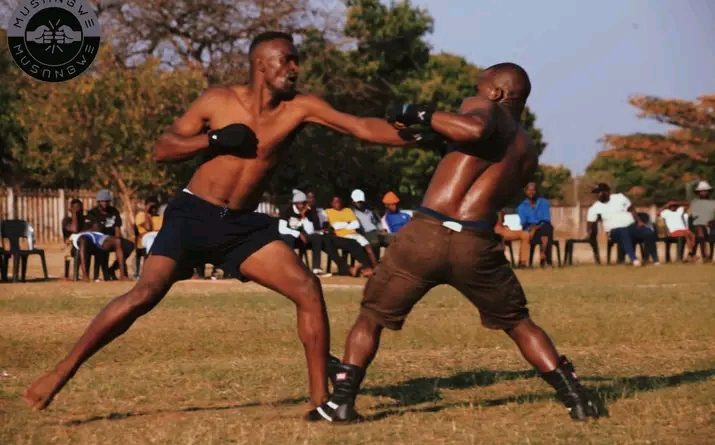Vhavenda young men clash in bare knuckle traditional fight
THOHOYANDOU
Every year from early December until early January, the Thohoyandou area of Venda is becoming one of the centres of attraction in Limpopo Province, with young men competing during the iconic Musangwe bare knuckle traditional fight.
The activity attracts hundreds of visitors from Venda and other parts of Limpopo who come in numbers to attend this traditional Venda fighting art, which is a cultural practice deeply rooted in the traditions of the Vhavenda people in Limpopo Province.
Musangwe is an intense and traditional form of bare-knuckle boxing that originated in rural villages of Limpopo, specifically among the Venda people. It is a sport that steeped in history and culture, where fighters use their fists and wits to take down their opponents. The fights are often held in a ring made of car tires, and there are no rounds or time limits, the fight continues until one fighter concedes defeat or is unable to continue.
The sport has a unique set of rules and rituals, including a pre-fight dance-like ritual where fighters taunt and challenge each other with gestures and movements. Fighters also use traditional medicine, known as muthi, which is believed to provide them with supernatural powers and protection them from injury.
The sport requires a high degree of physical conditioning, strength, agility and fighters must be well-versed in defensive techniques such as slipping and parrying.
The sport often used to settle disputes and conflicts between different tribes. It has a rich cultural significance and its preservation is crucial for keeping the tradition alive.
Currently, there are efforts underway to promote and preserve Musangwe through organized events such as tournaments and exhibitions around the world.
According to the organisers, Musangwe is more than just a physical contest, but a symbol of discipline, strength and cultural identity, often performed during cultural festivals especially during festive season.
It is often performed in a communal setting, accompanied by singing, drumming, and cheering from spectators.
As part of the rules, the fighting is usually hand-to-hand, with no weapons allowed. It emphasizes fairness, respect and skill over brute force. Elders or experienced fighters act as referees to maintain order.
Some believe Musangwe has a spiritual dimension, where participants connect with their ancestors for strength and guidance.
In modern perspective, while it remains a cherished tradition, some advocate for its modernization or adaptation to align with contemporary values, emphasizing safety and respect for all participants.
Despite all criticisms, Musangwe continues to be a vibrant expression of Venda culture, preserving the spirit of unity, bravery and tradition for future generations.
Overall, according to organisers, Musangwe is an exciting and unique sport that is deeply rooted in African culture and tradition. Its preservation is essential for keeping the tradition alive and it’s great to see efforts being made to promote and showcase this incredible sport.
Musangwe is taking place weekly from the beginning of December until the 1st week of January.




